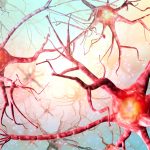Researches have found out that forgetting a memory activates a brain more than remembering it. It requires more mental effort to forget something than remembering it. Furthermore, the research indicated that if one wants to forget an undesirable experience, more attention should be focused on it.
This study focused on the perception and sensory areas of the brain, specifically the ventral temporal cortex and found that humans have an ability to control what they want to forget.

Lewis Peacock, who is affiliated with the UT Austin Department of Neuroscience and the Dell Medical School, mentioned that they we’re looking for the sight and not the source of attention in the brain. The lead author of the study, Tracy Wang added that a moderate level of brain activity is vital to this forgetting mechanism. Too strong, and it will strengthen the memory; too weak, and you won’t alter it.
In addition, the researches found that we are more likely to forget scenes than faces, which may carry more emotional information.
New mechanisms are being studied on how our brain responds to different types of information, and it will take a lot of supplementary research and reproduction of this work before researchers understand how to harness our ability to forget as Lewis-Peacock mentioned.
This could help with the basis of therapy required to eliminate memories, which can trigger maladaptive responses, in order to form new more healthy memories.




